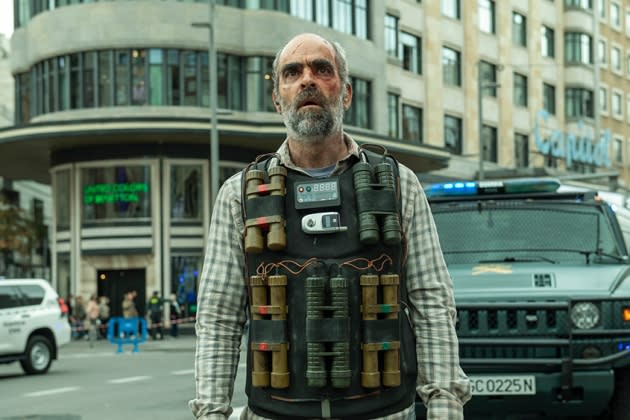Spanish Film Sales: Optimism Amidst Market Challenges

In the lead-up to Cannes, Spanish film sales continue to show resilience despite shifting market trends and global challenges. The market signals suggest an enduring preference for genre movies and high-concept films, while the sale of arthouse fare remains tough.
Antonio Saura, director general of Latido Films, tells Variety, “The trends we are seeing confirm the trends we identified last year — movies with a strong concept, genre in general, generate interest, [whereas] drama and ‘art house’ is more complicated and requires a different type of attention and positioning.”
More from Variety
Sean Penn's 'Black Flies' Jolts Cannes With Splattered Brains, Mike Tyson and Raves for Tye Sheridan
While there are signs of interest for movies with top talent attached, smaller films without a significant festival presence face an uphill battle.
This trend is underscored by the Spanish films selected for Cannes, which range from Benito Zambrano’s “Jumping the Fence” and Roya Sadat’s “Sima’s Song,” to Pau Calpe’s “Werewolf.” These films, part of the Spanish Screenings Goes to Cannes section, exemplify the diversity and adaptability of Spanish cinema.
This market gravitation towards films that can entertain reflects the economic uncertainties and shifting tastes still influenced by slow rebound by the box office after the height of the global pandemic.
The success of streaming plat- forms during COVID lockdowns has indelibly marked audience preferences, making it tougher for niche titles to find traction. Saura articulates the continuing challenge sales agents face: “Great, beautiful fantastically crafted arthouse dramas are having difficulties in the market, that is a fact. Nowadays you need a certain ‘extra’ to convince buyers: the ‘I love your movie, but I don’t see how I could convince my audience to watch it,’ happens more often than before.”
“Distributors are very interested in commercial propositions — action, horror — where they have an idea of what they could make at the box office. There’s also an interest in the new generation of filmmakers in Spain, often women, and art films of pedigree, thanks to festival selection or prizes,” says Filmax head of international Iván Díaz. “Titles in between, whose genre isn’t clear, are very difficult to sell.”
Vicente Canales of Film Factory Entertainment remains optimistic but also notes discernment in the market.
“Buyers have returned to the markets and show great interest in the titles we present. However, they remain highly selective.”
This selectiveness may favor smaller boutique agencies who themselves have to be very selective. Luis Renart of Tenerife-based Bendita Films heads to Cannes with two titles, “Samsara,” from Lois Patiño, which won Berlin’s Encounters Special Jury Prize; and Itsaso Arana’s directorial debut, “The Girls Are Alright.”
“Since we work with a small amount of titles, and every single title is different from the other our approach has to be highly tailored,” Renart says. “At the end of the day, we’re talking about single standalone films. Each of them with their unique possibilities.”
The larger players know all too well the importance of positioning. “A movie now requires even more marketing and wisdom than before,” says Saura. “As the market evolves, sales agents must become more strategic and innovative in their approach.”
Any external push is welcomed. “The effort the Spanish government is making this edition, the Marché’s Spain Country of Honor celebrations, are going to be very positive,” Renart says.
Some noted a wariness among distributors to close deals, adding to the anticipation and need for a strong Cannes showing. “Cannes is the most important market of the year. It was before, but now even more so,” Canales says, also wishing for more sales opportunities. “We miss having a strong market in the fall.”
Best of Variety
Tony Predictions: Best Musical -- Four Stand Poised to Give ‘Kimberly Akimbo’ Some Competition
This 'Fast and Furious' Arcade Cabinet Allows You to Step Behind the Wheel as Dom Toretto
Sign up for Variety’s Newsletter. For the latest news, follow us on Facebook, Twitter, and Instagram.

 Yahoo News
Yahoo News 